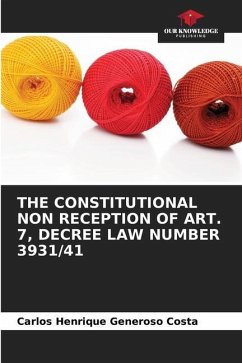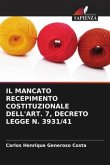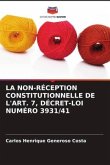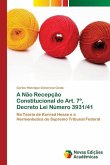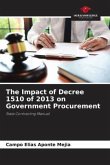The text will analyze Decree-Law number 3.931/41, the so-called Law of Introduction to the Rules of Brazilian Criminal Procedural Law, in relation to the 1988 Constitution of the Federative Republic of Brazil and its legal institution of constitutional reception.It will be defended that art. 7 of Decree-Law number 3.931/41 was not received by the Constitution, because the Principle of Constitutional Supremacy determines its supremacy, that is, all other infra-constitutional norms and those that precede the constitutional text must be balanced, before the scaling of the Constitution.The theoretical framework Konrad Hesse on the normative power of the constitution is of fruitful relief, and the jurisprudence of the Supreme Court has not yet addressed the issue, given the principles of Fullness of Defense and Competence for the Trial of Crimes Against Life.Therefore, and from an analysis of the Constitutional Principles related to the Jury Tribunal, it is possible to conclude that Decree-Law number 3.931/41 was not accepted by the Constitution.

